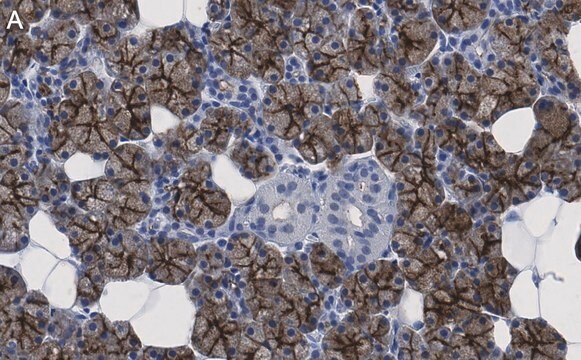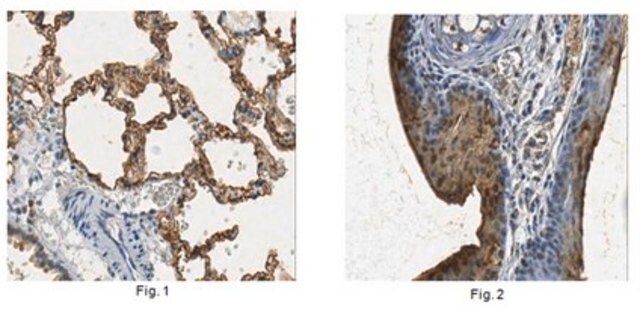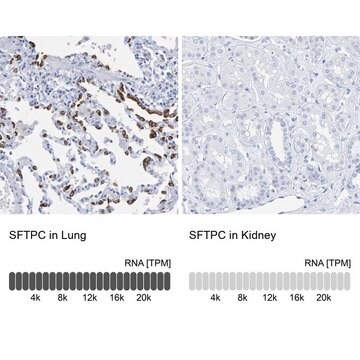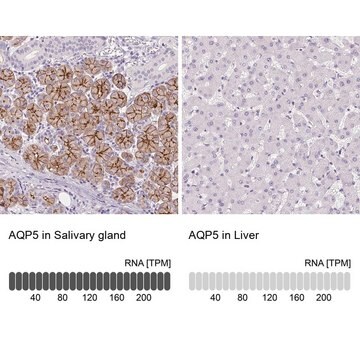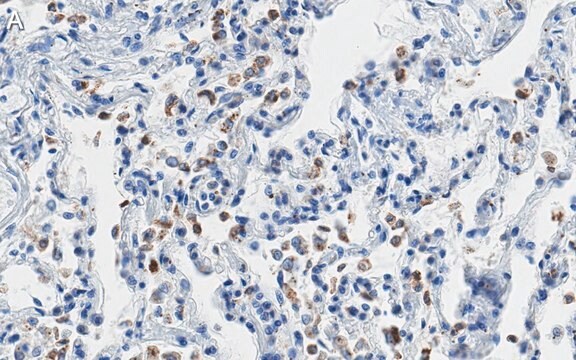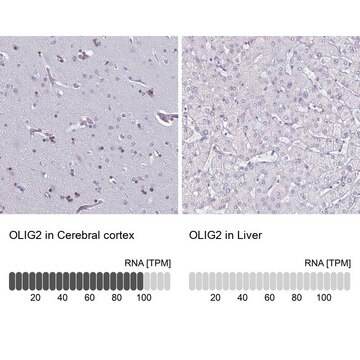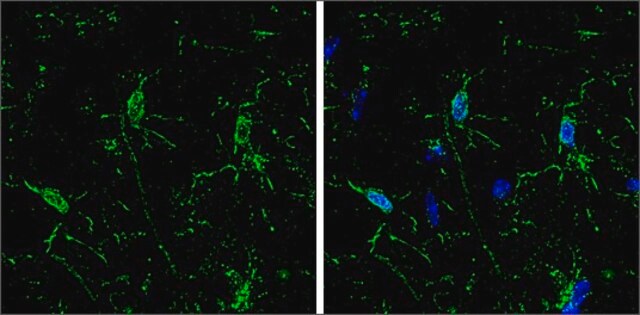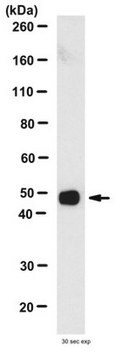A4979
Anti-Water Channel Aquaporin 5 antibody produced in rabbit
affinity isolated antibody, lyophilized powder
Sinonimo/i:
Anti-AQP-5, Anti-PPKB
Autenticatiper visualizzare i prezzi riservati alla tua organizzazione & contrattuali
About This Item
Prodotti consigliati
Origine biologica
rabbit
Livello qualitativo
Coniugato
unconjugated
Forma dell’anticorpo
affinity isolated antibody
Tipo di anticorpo
primary antibodies
Clone
polyclonal
Stato
lyophilized powder
Reattività contro le specie
mouse, rat
tecniche
western blot: 1:200-1:500 using mouse salivary gland and rat lung
N° accesso UniProt
Condizioni di spedizione
dry ice
Temperatura di conservazione
−20°C
modifica post-traduzionali bersaglio
unmodified
Informazioni sul gene
mouse ... Aqp5(11830)
rat ... Aqp5(25241)
Descrizione generale
Anti-Water Channel Aquaporin 5 binds to aquaporin 5 from mouse salivary gland and rat lung membranes.
Aquaporin-5 is part of a family of aquaporins that function to transport water across cell membranes. AQP5 is involved in tear, saliva, and sweat production.
Aquaporins are a family of small integral membrane proteins related to the major intrinsic protein (MIP or AQP0).
Immunogeno
peptide corresponding to residues 251-265 of rat AQP5. The sequence is identical in mouse and 10/16 residues identical in human.
Applicazioni
Rabbit Anti-Water Channel Aquaporin 5 antibody can be used for western blot at a dilution of 1:200-1:500 using mouse salivary gland and rat lung tissue extracts.
Stato fisico
Lyophilized from phosphate buffered saline, pH 7.4, 1% BSA, ≤0.1% sodium azide.
Esclusione di responsabilità
Unless otherwise stated in our catalog or other company documentation accompanying the product(s), our products are intended for research use only and are not to be used for any other purpose, which includes but is not limited to, unauthorized commercial uses, in vitro diagnostic uses, ex vivo or in vivo therapeutic uses or any type of consumption or application to humans or animals.
Non trovi il prodotto giusto?
Prova il nostro Motore di ricerca dei prodotti.
Codice della classe di stoccaggio
10 - Combustible liquids
Classe di pericolosità dell'acqua (WGK)
WGK 2
Punto d’infiammabilità (°F)
Not applicable
Punto d’infiammabilità (°C)
Not applicable
Scegli una delle versioni più recenti:
Possiedi già questo prodotto?
I documenti relativi ai prodotti acquistati recentemente sono disponibili nell’Archivio dei documenti.
Christian Müller et al.
The Journal of experimental biology, 209(Pt 20), 4067-4076 (2006-10-07)
Using primers against highly conserved regions of mammalian and bird aquaporins in RT-PCR experiments, we amplified products derived from duck (Anas platyrhynchos) nasal gland RNA that were identified as homologues of mammalian and chicken aquaporin 1 and aquaporin 5 cDNAs
A S Verkman et al.
American journal of physiology. Renal physiology, 278(1), F13-F28 (2000-02-08)
The aquaporins (AQPs) are a family of small membrane-spanning proteins (monomer size approximately 30 kDa) that are expressed at plasma membranes in many cells types involved in fluid transport. This review is focused on the molecular structure and function of
J W Snuggs et al.
Scientific reports, 11(1), 3164-3164 (2021-02-06)
The central region of the intervertebral disc (IVD) is rich in proteoglycans, leading to a hyperosmotic environment, which fluctuates with daily loading. The cells of the nucleus pulposus (NP cells) have adapted to this environment via the function of tonicity
Michael G Haase et al.
The journal of histochemistry and cytochemistry : official journal of the Histochemistry Society, 62(5), 355-368 (2014-03-29)
Ionizing radiation (IR) leads to fibrosing alveolitis (FA) after a lag period of several weeks to months. In a rat model, FA starts at 8 weeks after IR. Before that, at 5.5 weeks after IR, the transcription factors Sp1 (stimulating
Peter Agre et al.
The Journal of physiology, 542(Pt 1), 3-16 (2002-07-04)
The water permeability of biological membranes has been a longstanding problem in physiology, but the proteins responsible for this remained unknown until discovery of the aquaporin 1 (AQP1) water channel protein. AQP1 is selectively permeated by water driven by osmotic
Il team dei nostri ricercatori vanta grande esperienza in tutte le aree della ricerca quali Life Science, scienza dei materiali, sintesi chimica, cromatografia, discipline analitiche, ecc..
Contatta l'Assistenza Tecnica.